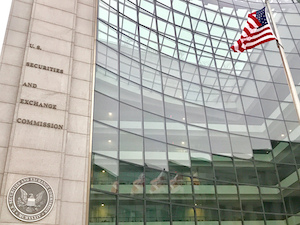A new Risk Alert from the Securities and Exchange Commission advises that some newly registered advisers need to improve their compliance procedures, disclosures and marketing practices.
 The findings outlined in the Alert are based on shortcomings that staff observed during recent examinations of newly registered advisers.
The findings outlined in the Alert are based on shortcomings that staff observed during recent examinations of newly registered advisers.
The SEC notes that, for the past several years, it has prioritized examining newly registered advisers within a reasonable period after the adviser’s SEC registration has become effective. These examinations typically involve document requests and interviews with advisory personnel addressing the adviser’s (1) business and investment activities; (2) organizational affiliations; (3) compliance policies and procedures; and (4) disclosures to clients.
Compliance Policies and Procedures
As part of this latest round of examinations, the staff observed compliance policies and procedures that:
- did not adequately address certain risk areas applicable to the firm, such as portfolio management and fee billing;
- omitted procedures to enforce stated policies, such as stating the advisers’ policy is to seek best execution, but not having any procedures to evaluate periodically and systematically the execution quality of the broker-dealers executing their clients’ transactions; and/or
- were not followed by advisory personnel, typically because the personnel were not aware of the policies or procedures or the policies or procedures were not consistent with their businesses or operations.
Additionally, the staff observed advisers’ annual compliance reviews that did not address the adequacy of the advisers’ policies and procedures and the effectiveness of their implementation. In these instances, the staff observed, for example, that advisers:
- used off-the-shelf compliance manuals that were not tailored for consistency with the advisers’ operations and business lines;
- may not have devoted sufficient resources to comply with regulatory requirements and their own policies and procedures;
- had undisclosed conflicts of interest created by the multiple roles and responsibilities of advisory personnel carrying out the assigned duties, and these conflicts were not mitigated;
- outsourced certain business and compliance functions without assessing how these responsibilities were being performed or whether they were consistent with the advisers’ compliance policies and procedures; and
- did not have adequate business continuity plans, including succession plans.
Disclosures and Filings
The staff also observed required disclosure documents that contained omissions or inaccurate information and untimely filings. In this case, the disclosure omissions and inaccuracies were related to advisers’:
- fees and compensation;
- business operations (including affiliates, other relationships, number of clients and assets under management);
- services offered to clients, such as disclosure regarding advisers’ investment strategy (including the use of models), aggregate trading and account reviews;
- disciplinary information;
- websites and social media accounts; and
- conflicts of interest.
Marketing
Finally, the SEC warns that some adviser marketing materials appeared to contain false or misleading information, including inaccurate information about advisory personnel professional experience or credentials, third-party rankings and performance. Advisers were also unable to substantiate certain factual claims, the SEC notes.
As part of its concluding observations, the SEC encourages firms to assess their supervisory, compliance, and/or other risk management systems related to these risks, and make any changes as may be appropriate.

